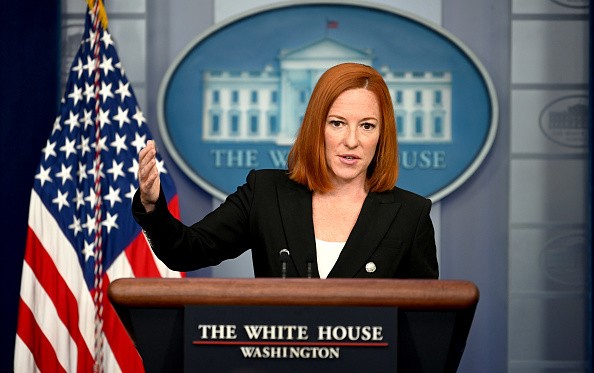According to White House press secretary Jen Psaki, the US administration is not in a hurry to recognize the Taliban's newly established government.

White House Press Secretary Jen Psaki Released a Statement on the Taliban Interim Government
In a recently published article in The Indian Express, White House Press Secretary Jen Psaki said during the daily briefing that no one in the government, including the President and the national security staff, would imply that the Taliban are valued members of the international community. Psaki stressed also that this is a caretaker cabinet that includes four former Taliban militants who have been imprisoned.
She also said that the decision to recognize the so-called "Taliban government" would be dependent on the militants' behavior. She further emphasized that recognizing the Taliban is not a priority. It will all be determined by the Taliban's actions. The whole world, particularly the United States, will be watching, she added.
These events occurred shortly after the Taliban declared its new caretaker administration, putting an end to days of uncertainty and rumors of internal infighting within the organization, which allegedly delayed the unveiling of the new Afghan regime, according to a published report in Yahoo News.
New Cabinet Composed of All Men
The Taliban proclaimed their new temporary administration after two decades in the wilderness, telling the world that they had reformed and were ready to be inclusive. The caretaker Cabinet, which is completely made up of men, is made up of long-time hard-line members of the militant organization, including a US-designated terrorist.
The lack of inclusiveness was noticed by a State Department spokeswoman, but Kate Clark, co-director of the Afghanistan Analysts Network, a policy research group headquartered in Kabul, said it was unsurprising, according to a published report in NBC News.
Clark said, "The Taliban never gave any hint that they wanted to include people other than themselves in the government. Anyone who thought they might make concessions or try to appease international opinion, or indeed, the opinions of other Afghans, to be honest, I think is a bit delusional."
Some of the Taliban Interim Government
Acting Prime Minister
Mohammad Hasan Akhund was the chairman of the Taliban's Rehbari Shura, or leadership council, for a long time. Before his death in 2013, Akhund was close to the Taliban's first commander, Mullah Mohammad Omar, and served as foreign minister and then deputy prime minister during the Taliban's control of Afghanistan from 1996 to 2001.
Acting Deputy Prime Minister
Abdul Ghani Baradar was the Taliban's political head and a founding member of the terrorist organization. When the group last governed Afghanistan, Baradar, who was also loyal to Omar, served as defense minister. According to a United Nations sanctions notice, he went on to become a top military commander and assisted in the leadership of assaults against coalition troops.
Acting Interior Minister
According to the FBI, the US government classified Sirajuddin Haqqani as a terrorist in March 2008, and a $10 million reward has been offered for information leading to his arrest. The head of the Haqqani network, which has been designated as a terrorist group by the United States, is sought for interrogation in connection with a January 2008 assault on a hotel in Kabul that killed six people, including one American.
Acting Foreign Minister
When the Taliban were in control, Amir Khan Muttaqi served as minister of culture and communication as well as minister of education. Later, he became a member of the Qatari peace commission and negotiating team, which conducted negotiations with the US. Muttaqi headed the Taliban's Invitation and Guidance Commission during the insurgency, which aimed to persuade government officials and others to defect to the organization.
Furthermore, the temporary administration, according to a State Department spokesman, is made up entirely of Taliban fighters or close allies, with no women and this raises the U.S. government a big concern.








